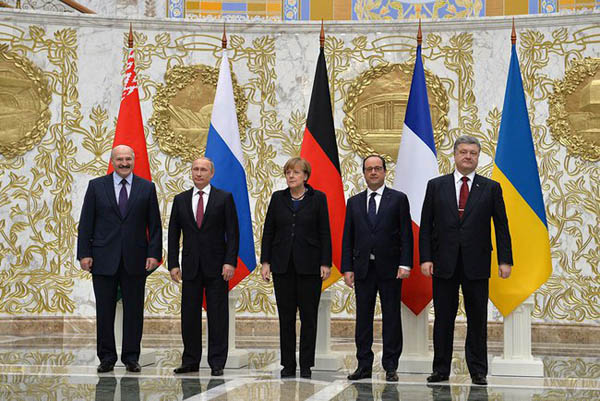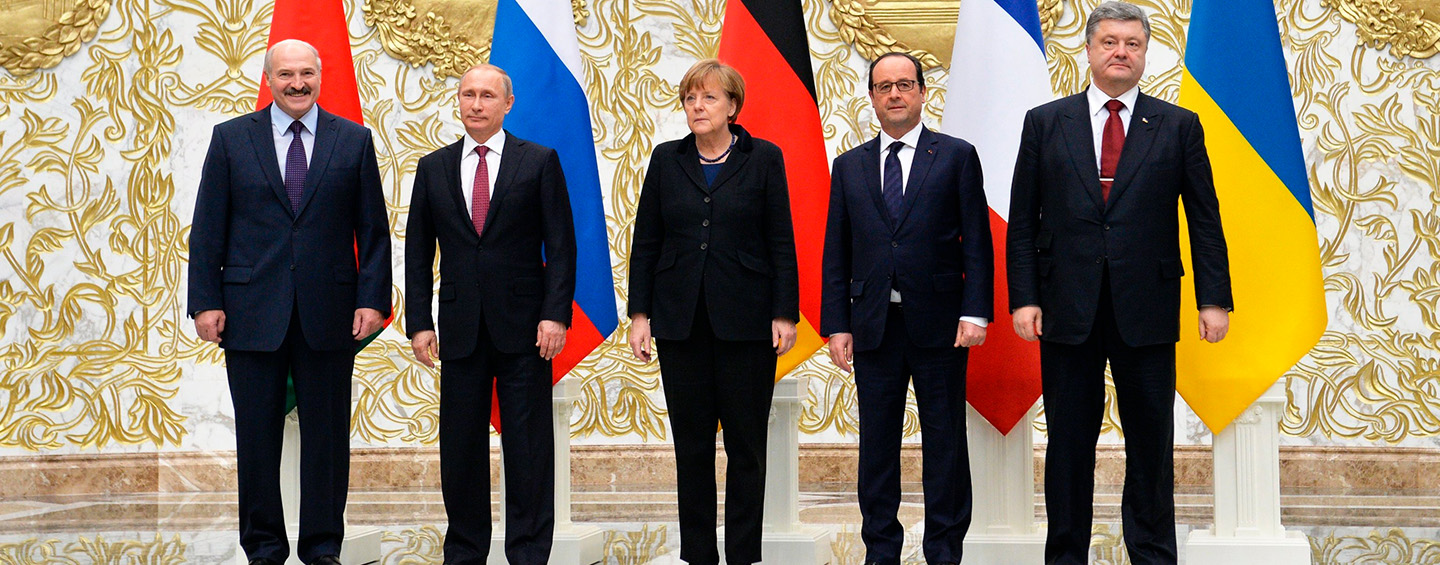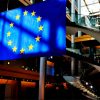
If consolidating a ceasefire in the eastern Ukraine will be difficult, making peace will be even more so. Nevertheless, although there are elements for a stable peace in what was negotiated at Minsk, it remains to be seen if, not Russia, but the government in Kiev –and the Ukrainian parliament– can really accept what was actually signed or said. In any case, such a peace would not be the best outcome for the Ukraine, but rather the least bad.
An issue to be cleared up these days is whether Moscow really controls the pro-Russian militias in the Donbass. It is slightly odd that in Minsk, as on previous occasions, Putin negotiated on behalf of the rebels despite denying that any Russian forces were or are deployed. However, formal agreement was signed by the rebels themselves.
Beyond the withdrawal of heavy weaponry, the release and exchange of prisoners and hostages, and the departure of armed foreigners (on both sides), there are certain features in the text signed by the parties and in the final declaration of the ‘Normandy Four’ (Germany, France, Russia and the Ukraine) that portend a peace that will be disliked by many.
To begin with, at Minsk there was no talk of Crimea. Both the Ukrainians and the Europeans have given it up for lost, but it will always be an irritant in the relations between the EU and Moscow. Putin has been the winner in this case.
Regarding the zones in conflict, the Ukrainian President, Petro Poroshenko, has accepted granting them autonomy within the Ukraine. A reform of the Ukrainian constitution before the end of year will guarantee their status, with, additionally, the approval of a ‘permanent law’ on the special character of specific areas in the regions of Donetsk and Lugansk. But will it be accepted by the Ukrainian parliament? Before this, over the next 30 days, a Ukrainian law will have to be approved defining the areas that will be under interim self-government. Putin had suggested some months ago the adoption of a federal system for the Ukraine to leave the part now occupied by the rebels with a high degree of autonomy. Kiev rejected his proposal. There must also be negotiations to establish how to conduct local elections. Who is likely to win? Most probably the pro-Russians. Whether it is called a federal solution or not, Putin will have achieved what he wanted (if he wants more, we should find out in a few days, weeks or months). Ultimately this will continue to be a frozen conflict, even if the Ukraine controls the borders with Russia.
Putin has also contrived to get himself trilateral talks between Russia, the Ukraine and the EU on energy issues and on the implementation of the agreement between the Ukraine and the EU. Thus, he has managed to elbow himself in. A few weeks ago Berlin even suggested the possibility of negotiations between the EU itself and the Eurasian Union promoted by the Russian President. If the ceasefire stabilised, negotiations will no doubt be resumed.
Conversations in Minsk last week returned to ‘the vision of a common humanitarian and economic space from the Atlantic to the Pacific’, according to the Four’s statement. Previously the definition was from Lisbon to Vladivostok. Gorbachev –who remembers him now?– had proposed in his day to build a ‘common European home’. But until a pan-European approach is conceived –in which there must necessarily be a special relationship between Berlin and Moscow, which Merkel might do well to ponder, rooted in history–, the question of the Ukraine, the victim of geography and history, will be difficult to resolve. The reborn Organisation for Security and Cooperation in Europe OSCE), which is to supervise the ceasefire, may be that framework. The enlargement of the EU and NATO to accommodate the Ukraine was most likely not discussed at Minsk. But it is understood that the issue remains off the agenda.
Finally, peace will require money. The IMF has now promised to give the Ukraine, which is on the brink of bankruptcy, €15.5 billion on condition that it carries out in-depth political and economic reforms. With other commitments, the total could reach €21 billion, although the Ukraine will need a lot more, and that is not counting the cost of rebuilding devastated areas. Furthermore, as provided in the agreement, it will be necessary to provide social assistance (pensions, etc.) and to pay for basic public services in the ‘war zone’. Europe prefers not to admit there is a war, although that –a war– is precisely what there is, there has been and there might well be again.
The negotiations have been very one-sided: Europe has shown its cards, including its aversion to being sucked into a war; Putin has not shown his hand. The outcome is also unequal. Russia is much stronger than the Ukraine in every way, and arming the Ukrainians from the outside, as sought by Washington, would only lead to an even more dangerous escalation. Merkel, a realist, has understood this very well, and she also knew while negotiating in Minsk that the Ukrainian troops were losing ground. What can sustain the ceasefire is a balance of weaknesses: the Ukraine feels weak economically and militarily, while Russia is being penalised by sanctions, the drop in oil prices, the fall of the rouble and recession. Moscow fears that the West will leave Russia out of the essential SWIFT international control system for financial transactions, which it would see as a declaration of war or, at the very least, of a Cold War. Prime Minister Medvedev has warned that the Russian response would be ‘unlimited’. There is also the danger that if Putin is excessively weak he might ratchet up the tension in the eastern Ukraine in order to gain domestic support in Russia. The ceasefire is very precarious; and the possible peace even more so. But at least something has been sketched out in Minsk.



